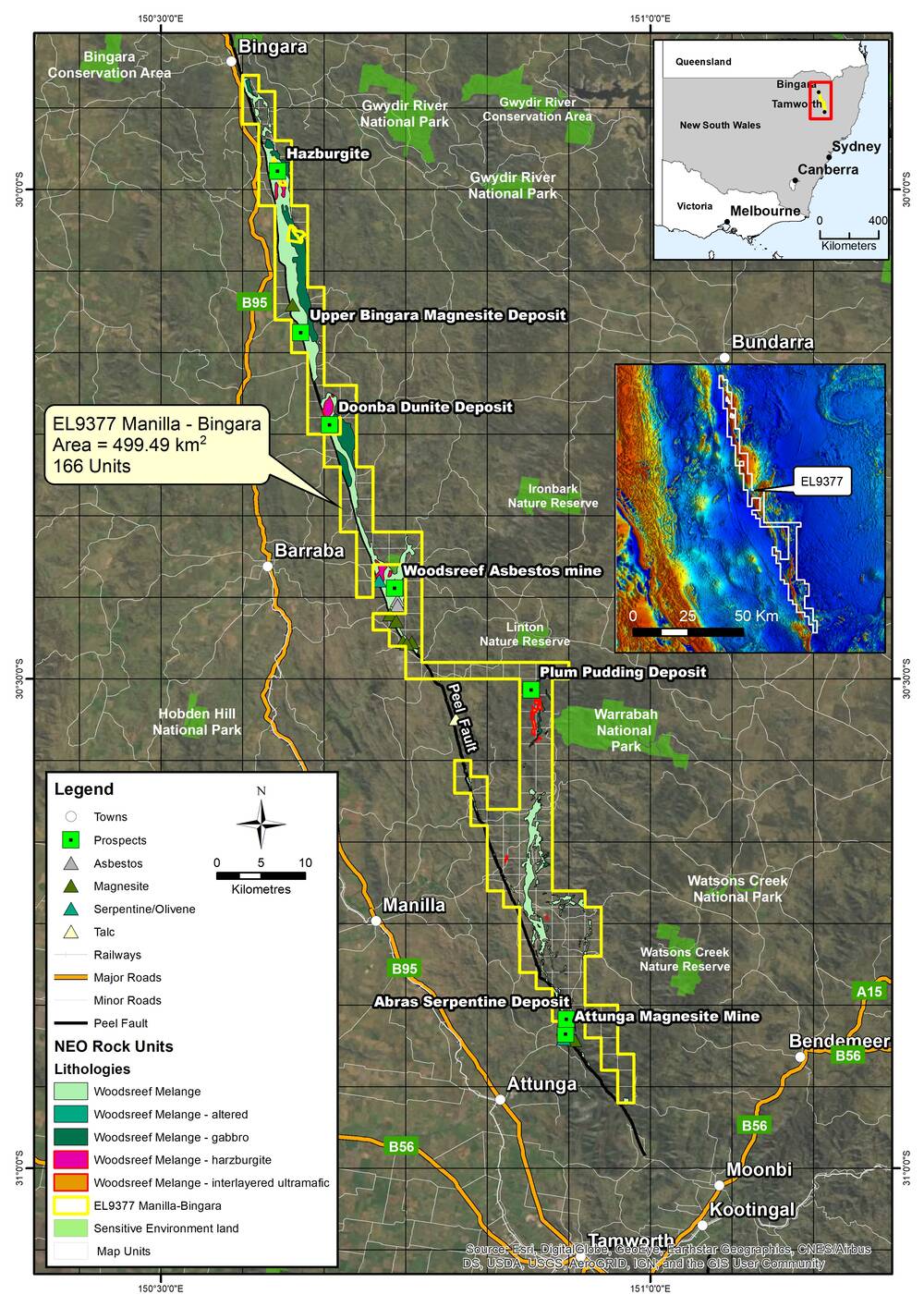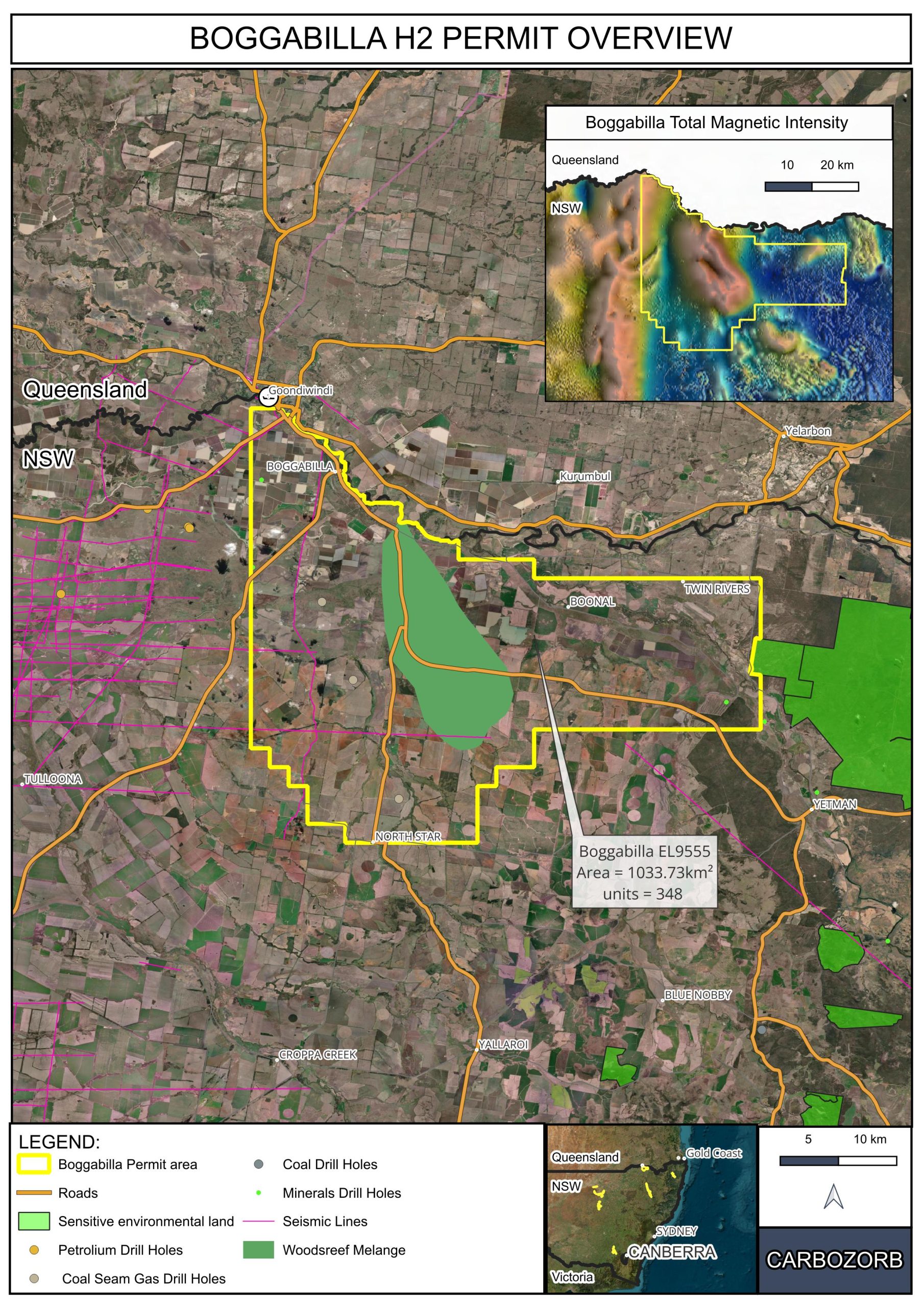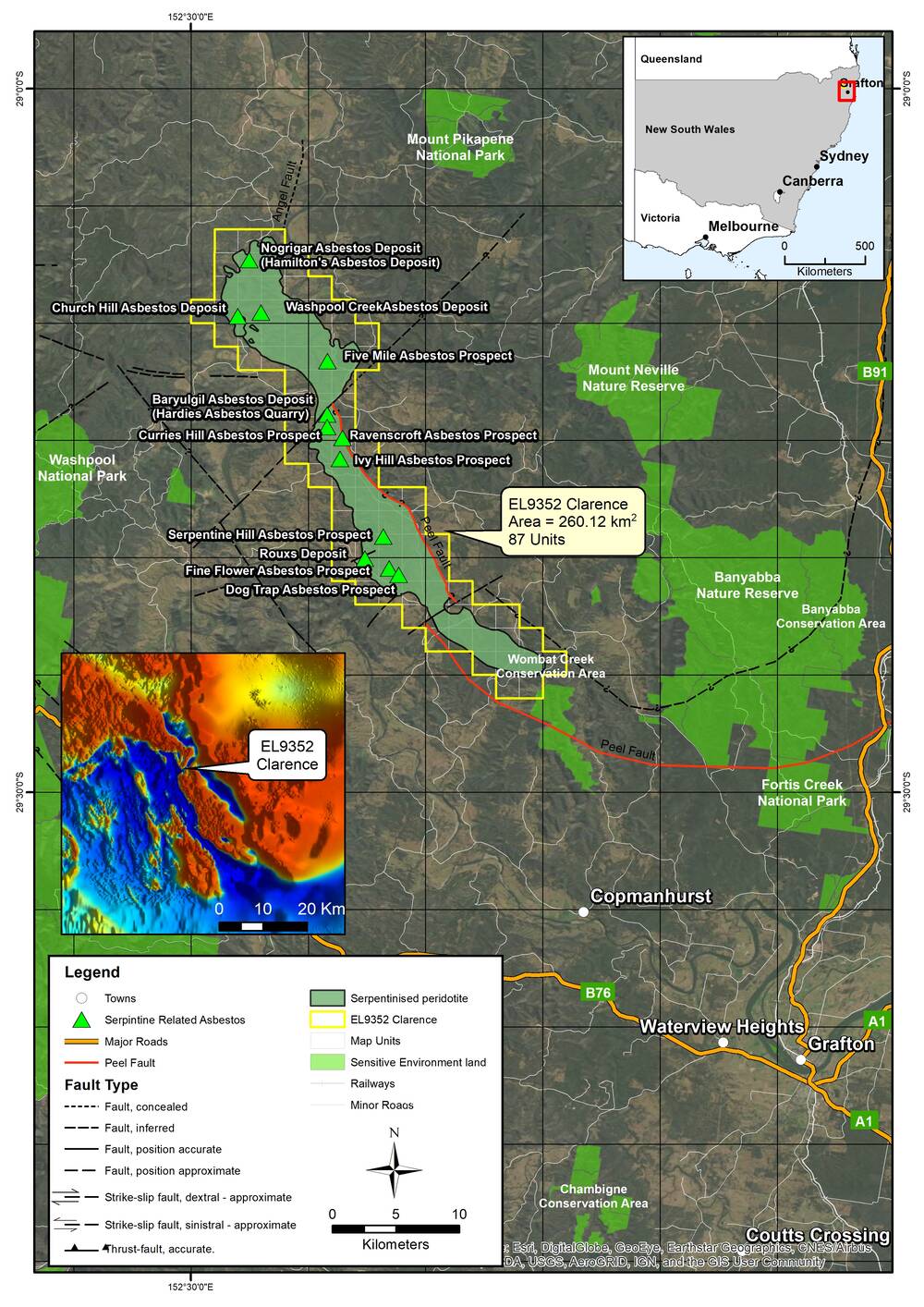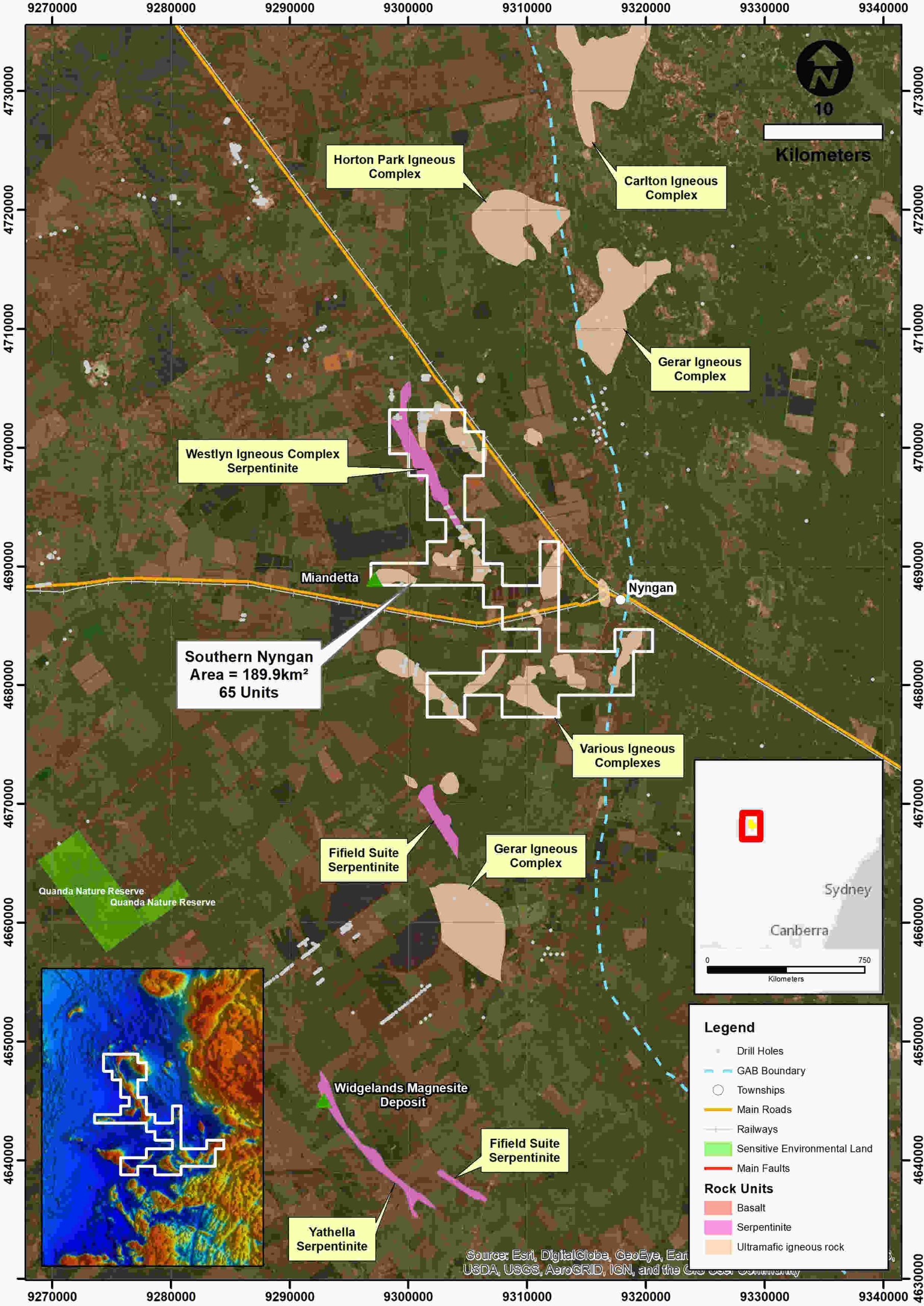Carbozorb Pty Ltd holds 4 Mineral Exploration Licences in New South Wales, Australia.
The suitability of ultramafic rocks in the Great Serpentinite Belt (GSB) are being evaluated for CO2 mineralization potential. Ultramafic rocks have been identified in the permit areas from outcrops and geophysics analyses.
The sequestration of CO2 from both direct air capture and point source emissions are being considered in NSW.



